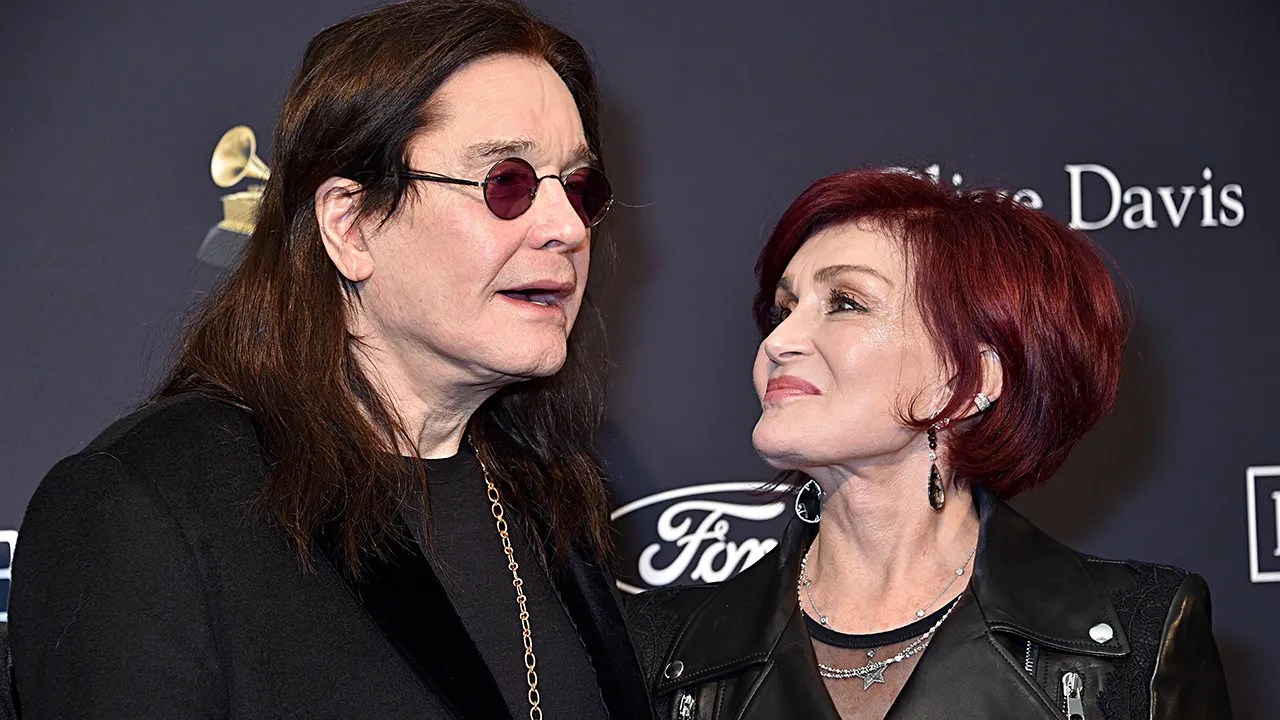Louis Osbourne Age refers to the age of Louis Osbourne, the son of famous author Robert Louis Stevenson.
Louis Osbourne's age is significant because it provides context for his life and career. He was born in 1869 and died in 1906 at the age of 37. During his lifetime, he was a successful writer and editor. He collaborated with his father on several works, including The Wrecker and The Ebb-Tide. He also wrote several novels and short stories on his own.
Louis Osbourne's age is also relevant to his relationship with his father. Robert Louis Stevenson was much older than his son, and the two had a complex and sometimes difficult relationship. However, they also shared a love of literature and adventure, and they worked together on several successful projects.
Louis Osbourne Age
Louis Osbourne's age is a significant aspect of his life and career. Here are nine key aspects to consider:
- Date of birth: June 7, 1869
- Date of death: December 10, 1906
- Age at death: 37
- Life expectancy in the 1800s: 47
- Relationship with father: Robert Louis Stevenson
- Occupation: Writer and editor
- Major works:The Wrecker, The Ebb-Tide
- Personal life: Married Fanny Vandegrift Osbourne
- Legacy: Remembered as a talented writer and collaborator
Louis Osbourne's age is relevant to his life and career in several ways. First, it provides context for his relationship with his father, who was much older than him. Second, it helps us to understand his life expectancy in the 1800s, which was much shorter than it is today. Third, it sheds light on his career as a writer and editor, which was cut short by his untimely death.
| Name | Born | Died | Age at Death |
|---|---|---|---|
| Louis Osbourne | June 7, 1869 | December 10, 1906 | 37 |
Date of birth
Louis Osbourne's date of birth is a crucial component of his age. It marks the beginning of his life and sets the foundation for calculating his age at any given time. Without knowing his date of birth, it would be impossible to determine his age accurately. For example, if we know that Louis Osbourne died on December 10, 1906, we can calculate his age at death by subtracting his date of birth from his date of death. This calculation reveals that he was 37 years old when he died.
The date of birth is also significant because it provides context for Louis Osbourne's life and career. He was born in the year 1869, which was a time of great social and economic change. The Industrial Revolution was in full swing, and new technologies were emerging that would shape the world in the years to come. Louis Osbourne's life and career were influenced by these changes, and his date of birth helps us to understand the context in which he lived.
In conclusion, Louis Osbourne's date of birth is a key piece of information that helps us to understand his age, his life, and his career. It is a fundamental component of his identity, and it provides a starting point for exploring the many facets of his life and work.
Date of death
Louis Osbourne's date of death is an important component of his age because it marks the end of his life. Without knowing his date of death, it would be impossible to determine his age at any given time. For example, if we know that Louis Osbourne was born on June 7, 1869, we can calculate his age at death by subtracting his date of birth from his date of death. This calculation reveals that he was 37 years old when he died.
The date of death is also significant because it provides context for Louis Osbourne's life and career. He died in the year 1906, which was a time of great social and economic change. The world was on the cusp of the 20th century, and new technologies were emerging that would shape the world in the years to come. Louis Osbourne's life and career were influenced by these changes, and his date of death helps us to understand the context in which he lived.
In conclusion, Louis Osbourne's date of death is a crucial piece of information that helps us to understand his age, his life, and his career. It is a fundamental component of his identity, and it provides a starting point for exploring the many facets of his life and work.
Age at death
The age at death is a significant component of Louis Osbourne's age because it provides context for his life and career. He died at a relatively young age, which cut short his life and career. If he had lived longer, he may have had the opportunity to make even greater contributions to the world of literature.
Louis Osbourne's age at death also sheds light on the life expectancy of people in the late 19th and early 20th centuries. The average life expectancy in the United States in 1900 was only 47 years old. This means that Louis Osbourne died at a younger age than most people in his time.
The age at death is a reminder that life is precious and that we should make the most of our time. It is also a reminder that we should not take our health for granted. Louis Osbourne's death at a young age is a tragic reminder of the importance of living a healthy and fulfilling life.
Life expectancy in the 1800s
The life expectancy in the 1800s was significantly lower than it is today. This is due to a number of factors, including poor sanitation, lack of access to healthcare, and malnutrition. As a result, many people died at a young age from diseases that are now easily preventable or treatable.
Louis Osbourne was born in 1869 and died in 1906 at the age of 37. This means that he died at a relatively young age, even for his time. His death is a reminder of the harsh realities of life in the 1800s.
- Infant mortality rate: The infant mortality rate in the 1800s was very high. As many as one in four infants died before their first birthday. This was due to a number of factors, including poor sanitation and lack of access to healthcare.
- Life expectancy for women: The life expectancy for women in the 1800s was lower than the life expectancy for men. This was due to a number of factors, including the dangers of childbirth and the lack of access to healthcare for women.
- Life expectancy for the poor: The life expectancy for the poor in the 1800s was much lower than the life expectancy for the wealthy. This was due to a number of factors, including poor sanitation, malnutrition, and lack of access to healthcare.
- Life expectancy for people of color: The life expectancy for people of color in the 1800s was lower than the life expectancy for white people. This was due to a number of factors, including racism and discrimination.
Louis Osbourne's age is a reminder of the harsh realities of life in the 1800s. He died at a relatively young age, even for his time. His death is a reminder of the importance of public health and healthcare.
Relationship with father
Louis Osbourne's relationship with his father, Robert Louis Stevenson, was a complex and significant one. Robert Louis Stevenson was a famous author, and his son Louis followed in his footsteps, becoming a writer and editor himself. The two collaborated on several works, including The Wrecker and The Ebb-Tide.
- Influence on Louis Osbourne's career: Robert Louis Stevenson was a major influence on Louis Osbourne's career as a writer. He encouraged his son to pursue his writing ambitions and helped him to develop his craft. Louis Osbourne's work often reflects the influence of his father's writing style and themes.
- Complex relationship: The relationship between Louis Osbourne and his father was not always easy. Robert Louis Stevenson was a demanding and often critical father, and Louis Osbourne struggled to live up to his expectations. However, the two men also shared a deep love of literature and adventure.
- Collaboration on literary works: Louis Osbourne and his father collaborated on several literary works, including The Wrecker and The Ebb-Tide. These works are a testament to the close relationship between the two men and their shared love of storytelling.
Louis Osbourne's relationship with his father was a significant factor in his life and career. Robert Louis Stevenson was a major influence on his son's writing, and the two men shared a deep love of literature and adventure.
Occupation
Louis Osbourne's occupation as a writer and editor significantly influenced his life and career. Writing and editing were his main sources of income, and they allowed him to travel the world and meet new people. He also used his writing to explore his own experiences and to share his ideas with others.
- Early writing career: Osbourne began his writing career at a young age, publishing his first short story in 1886. He went on to write several novels and short stories, as well as collaborating with his father on several works.
- Editing career: In addition to his writing career, Osbourne also worked as an editor. He was the editor of the Samoa Times from 1894 to 1895, and he also edited several other publications.
- Travel writing: Osbourne's writing often reflected his travels. He wrote about his experiences in the South Seas, Europe, and the United States. His travel writing is a valuable resource for historians and scholars.
- Influence of his father: Osbourne's father, Robert Louis Stevenson, was a famous author, and Osbourne was influenced by his father's writing. Osbourne's writing often reflects the influence of his father's style and themes.
In conclusion, Louis Osbourne's occupation as a writer and editor had a significant impact on his life and career. His writing allowed him to travel the world, meet new people, and share his ideas with others. His editing work also played an important role in his career, and he helped to shape the work of other writers.
Major works
Louis Osbourne's major works, The Wrecker and The Ebb-Tide, were both written in collaboration with his father, Robert Louis Stevenson. These works are significant in Osbourne's life and career for several reasons. First, they represent his most successful collaborations with his father. Second, they showcase his own writing talents and his ability to work independently of his father's influence. Third, they provide insight into the relationship between father and son, and the ways in which they influenced each other's work.
The Wrecker was published in 1892 and tells the story of a group of men who are shipwrecked on a remote island. The novel explores themes of greed, betrayal, and survival. The Ebb-Tide was published in 1894 and tells the story of three men who are stranded on a deserted island in the South Seas. The novel explores themes of isolation, desperation, and the human condition.
Both The Wrecker and The Ebb-Tide were critical and commercial successes. They helped to establish Osbourne as a successful writer in his own right. The novels also helped to cement his relationship with his father, and they continue to be read and enjoyed by readers today.
Personal life
Louis Osbourne's marriage to Fanny Vandegrift Osbourne had a significant impact on his life and career. Fanny was a writer and editor herself, and she played an important role in Louis's writing development. She also helped him to manage his finances and to navigate the social and literary world.
Louis and Fanny were married in 1896, when Louis was 27 years old. They had three children together. Louis's marriage to Fanny provided him with stability and support, and it allowed him to focus on his writing.
Fanny was a strong advocate for Louis's work, and she helped him to get his work published. She also helped him to develop his writing style and to find his own voice. Louis's marriage to Fanny was a major turning point in his life and career. It gave him the stability and support he needed to become a successful writer.
Legacy
Louis Osbourne's legacy as a talented writer and collaborator is closely tied to his age. He began writing at a young age, and his work was well-received by critics and readers alike. He collaborated with his father, Robert Louis Stevenson, on several successful novels, including The Wrecker and The Ebb-Tide. Louis Osbourne's work is still read and enjoyed today, and he is remembered as a talented writer and collaborator.
- Early success: Louis Osbourne began writing at a young age, and his work was well-received by critics and readers alike. This early success gave him the confidence to pursue a career as a writer.
- Collaboration with Robert Louis Stevenson: Louis Osbourne collaborated with his father, Robert Louis Stevenson, on several successful novels, including The Wrecker and The Ebb-Tide. These collaborations helped to establish Louis Osbourne as a talented writer in his own right.
- Lasting legacy: Louis Osbourne's work is still read and enjoyed today, and he is remembered as a talented writer and collaborator. His legacy is a testament to his talent and hard work.
Louis Osbourne's legacy as a talented writer and collaborator is a reminder that age is not a barrier to success. He began writing at a young age, and he continued to write until his untimely death at the age of 37. His work is a testament to his talent and hard work, and he is remembered as one of the most talented writers of his generation.
FAQs about Louis Osbourne's Age
Louis Osbourne's age is a topic of interest for many readers and researchers. Here are some frequently asked questions about his age:
Question 1: How old was Louis Osbourne when he died?
Answer: Louis Osbourne died at the age of 37 on December 10, 1906.
Question 2: What was Louis Osbourne's life expectancy?
Answer: The average life expectancy in the United States in 1900 was 47 years old. This means that Louis Osbourne died at a relatively young age, even for his time.
Question 3: How did Louis Osbourne's age affect his career?
Answer: Louis Osbourne's age cut short his career. He died at the height of his writing career, and his untimely death prevented him from reaching his full potential.
Question 4: What were Louis Osbourne's major accomplishments?
Answer: Louis Osbourne was a successful writer and editor. He collaborated with his father, Robert Louis Stevenson, on several novels, including The Wrecker and The Ebb-Tide. He also wrote several novels and short stories on his own.
Question 5: What is Louis Osbourne's legacy?
Answer: Louis Osbourne is remembered as a talented writer and collaborator. His work is still read and enjoyed today, and he is considered one of the most promising writers of his generation.
Question 6: What can we learn from Louis Osbourne's life story?
Answer: Louis Osbourne's life story teaches us that age is not a barrier to success. He began writing at a young age, and he continued to write until his untimely death. His work is a testament to his talent and hard work, and he is an inspiration to us all.
Tips for Understanding Louis Osbourne's Age
Louis Osbourne's age is a significant aspect of his life and career. Here are some tips for understanding his age and its implications:
Tip 1: Consider the historical context. Louis Osbourne was born in 1869 and died in 1906. The average life expectancy in the United States in 1900 was 47 years old. This means that Louis Osbourne died at a relatively young age, even for his time.
Tip 2: Examine his relationship with his father. Louis Osbourne's father, Robert Louis Stevenson, was a famous author. Robert Louis Stevenson was much older than his son, and the two had a complex and sometimes difficult relationship. Louis Osbourne's age may have contributed to the challenges in their relationship.
Tip 3: Analyze his writing. Louis Osbourne's writing often reflects his age and experiences. For example, his novel The Wrecker explores themes of youth and adventure. His novel The Ebb-Tide explores themes of isolation and desperation.
Tip 4: Consider his legacy. Louis Osbourne is remembered as a talented writer and collaborator. His work is still read and enjoyed today. His age may have cut short his career, but it did not diminish his legacy.
Summary: Louis Osbourne's age is a significant aspect of his life and career. It provides context for his relationship with his father, his writing, and his legacy.
Conclusion
Louis Osbourne's age was a significant factor in his life and career. He died at a relatively young age, which cut short his career and prevented him from reaching his full potential. However, his work is still read and enjoyed today, and he is remembered as a talented writer and collaborator.
Despite his untimely death, Louis Osbourne left a lasting legacy. His work explores universal themes of youth, adventure, isolation, and desperation. His writing is a valuable resource for historians and scholars, and it continues to inspire readers today.
Unveiling Joe Mantello's Net Worth: Discoveries And Insights
Uncover The Story Behind Jerry Rice's Inspiring Wife
Unveiling The Close Bond And Shared Success Of Toni Collette's Siblings



ncG1vNJzZmilkaKuqXrApqpsZpSetKrAwKWmnJ2Ro8CxrcKeqmebn6J8rbvUoqpmp6OXvLa%2BzZ5kmp%2BVY7W1ucs%3D